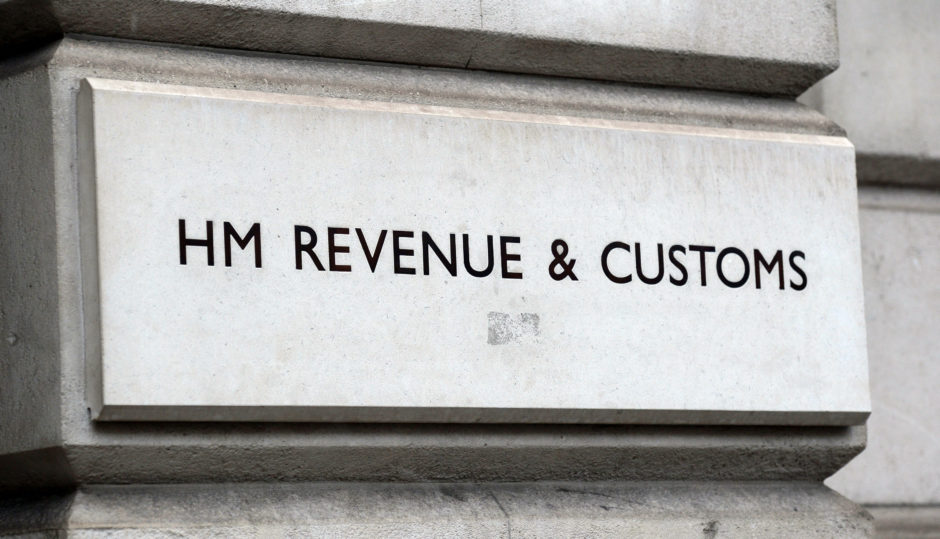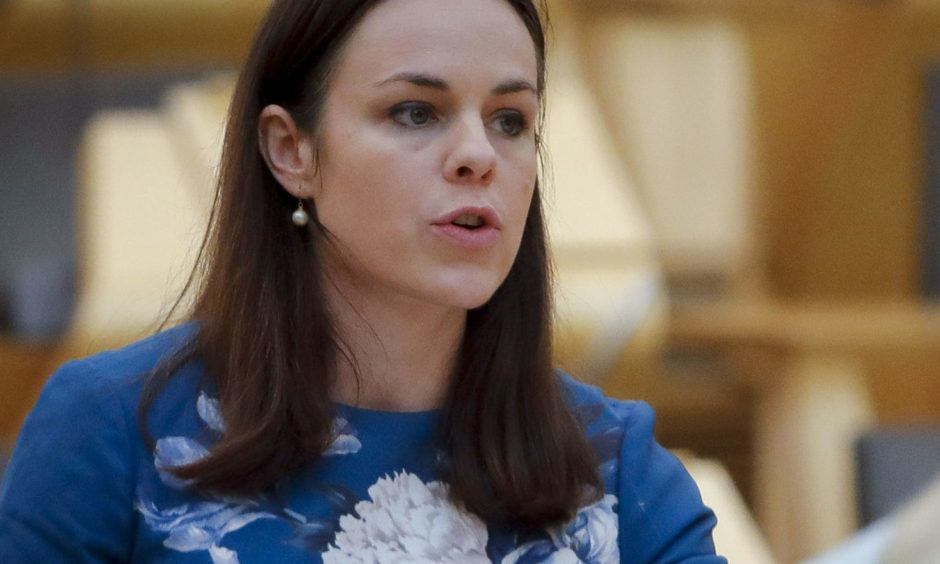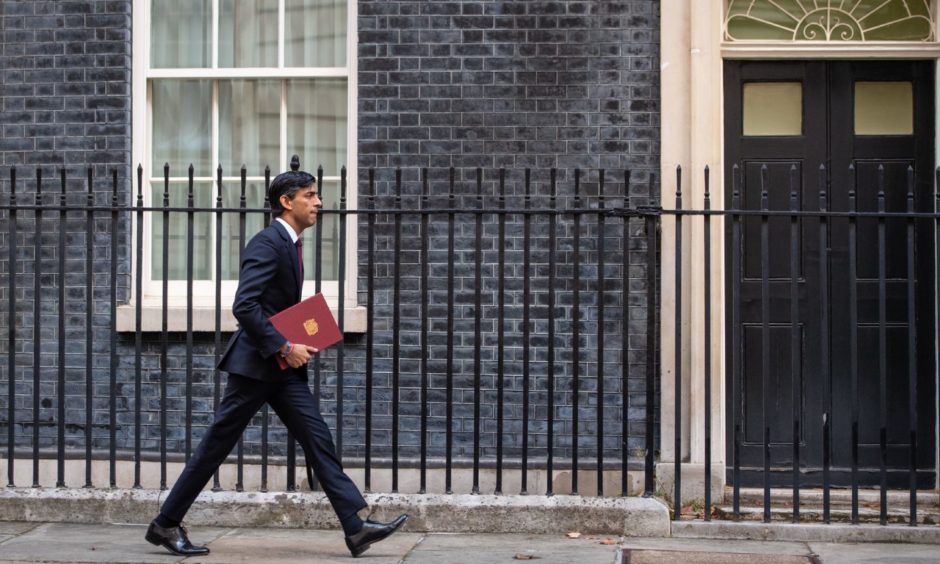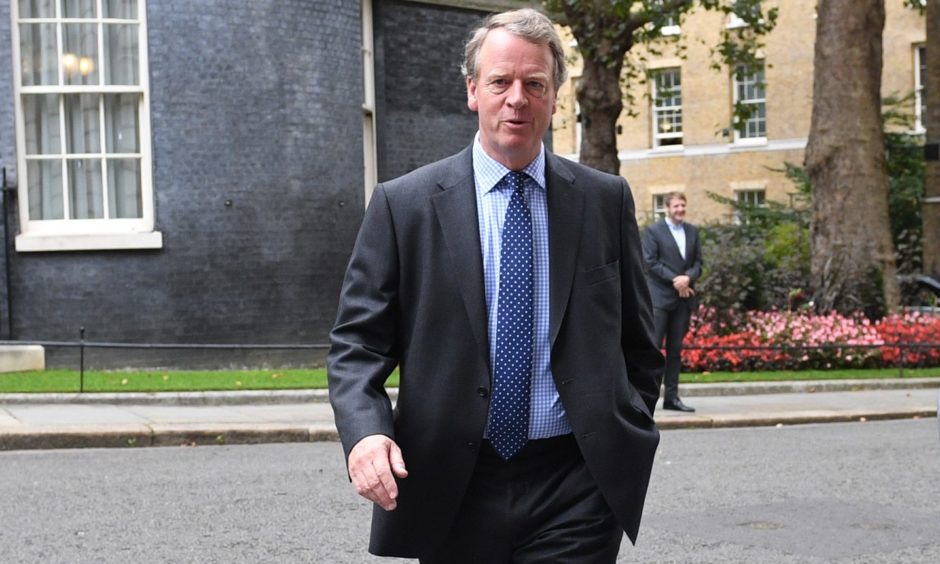Billions of pounds of extra funding have been pledged to help businesses survive the winter – but the Scottish Government warned that local firms are being “kept in the dark” about their future.
Amid fears over soaring unemployment rates and company closures across Britain, Chancellor Rishi Sunak moved to overhaul his previously proposed package of support, just a week before the end of the furlough scheme.
Business leaders and trade union chiefs welcomed many of the measures, although fears were raised that it could be “too little, too late” for some workers.
Labour branded it a “patchwork of poor ideas rushed out at the last minute”, while the SNP government in Holyrood said the lack of certainty for Scottish firms is “unacceptable and unsustainable”.
The chancellor has written a blank cheque for business support grants in England, but is refusing to do the same for Scotland.”
Mr Sunak said: “I’ve always said that we must be ready to adapt our financial support as the situation evolves, and that is what we are doing today. These changes mean that our support will reach many more people and protect many more jobs.
“I know that the introduction of further restrictions has left many people worried for themselves, their families and communities.
“I hope the government’s stepped-up support can be part of the country pulling together in the coming months.”
Two of the three elements of package will be UK-wide, including making the Job Support Scheme, which replaces the current furlough system, more generous.
Due to come into effect on November 1, it was initially expected to ask employers to pay a third of their employees’ wages for hours not worked, and required them to be working 33% of normal hours.
Mr Sunak’s announcement on Thursday cuts the employer contribution to just 5%, and reduces the minimum hours requirement to 20%, so those working just one day a week will be eligible.
The government said it means that if someone is paid £587 for their unworked hours, the government would be contributing £543 and their employer only £44.
The announcement also increased self-employed grants, with the amount of profits covered increasing from 20% to 40%, meaning the maximum will rise from £1,875 to £3,750.
The Treasury said this represents a potential further £3.1bn of support to the self-employed through November to January alone, with a further grant to follow covering February to April.

The third funding announcement, which does not apply directly to Scotland, will make grants of £2,100 available for firms in Tier 2 areas of England, primarily aimed at helping hospitality and leisure venues.
In a move which could be worth more than £1bn, these grants will also be available retrospectively for areas which have already been subject to restrictions, and come on top of higher levels of additional business support for areas moving into Tier 3.
In England, however, the Conservative government was accused of bending the rules to suit the south after wrangling with Manchester over £5m, before offering up billions of pounds of fresh support as soon as London faced tougher restrictions.
Mr Sunak has also not confirmed the level of any resulting funding increase for the Scottish Government, as a result of the rising spending on grants in England.
Scotland’s Finance Secretary Kate Forbes said: “The chancellor has written a blank cheque for business support grants in England, but is refusing to do the same for Scotland.
“That is an unacceptable and unsustainable position and once again underlines the urgent case for Scotland having control of its own finances.
“We are being kept in the dark on future funding and denied the ability to borrow if we need to – and it is utterly wrong for Scottish business to not have the same level of certainty on financial support that is available to businesses in England.
“The chancellor must urgently commit to providing the Scottish Government with the funding we require to support Scottish businesses thorough this pandemic.”
In the Commons, Labour MP Chris Bryant asked about the additional money for the devolved administrations, saying the various mechanisms caused “confusion” for a lot of ordinary people.
Mr Sunak said: “He is right and I can appreciate the confusion. We try to do things on a UK-wide level, but obviously not everything will be on that level.
“I cannot give him a precise figure, because these are demand-led schemes.
“What we have tried to do is provide upfront funding guarantees in advance of that demand being drawn down in England and the Barnett consequentials being delivered.
“We true those up on a regular basis—I am happy to write to him with further details—but we try to provide the funding to Wales, Scotland and Northern Ireland in advance of that demand actually occurring in England.
“I think that is a better and more generous approach for the devolved nations.”
Previously announced funding to Holyrood under Barnett consequentials since the start of the pandemic has reached £7.2bn.
Liz Cameron, chief executive of the Scottish Chambers of Commerce, welcomed the new package.
“The UK Chancellor’s new business grant and job support scheme extension will be absolutely necessary to the survival of many businesses as Covid-19 restrictions are set to be in place indefinitely,” she said.
The UK Chancellor’s new business grant and job support scheme extension will be absolutely necessary to the survival of many businesses as Covid-19 restrictions are set to be in place indefinitely.”
“The boost to the self-employed grant will be welcomed by many who have been at risk of not receiving the support that they need.
“Chambers of Commerce in Scotland and the UK have been campaigning for greater support for businesses experiencing big falls in demand as a result of new restrictions, and a number of the steps announced today, including the lowering of employer contributions and the number of hours worked needed to qualify for the jobs support scheme, respond directly to our calls.
“As the Scottish Government is set to confirm its own approach to a tiered system of restrictions, it is essential that consequential funding is delivered to where it is needed most to save jobs. This must also be tied to every stage of restriction as a matter of course and not in incremental, repeated tweaks.
“It is clear that this winter will be extremely difficult for employers, their employees and a sustained approach to jobs support into 2021 is critical.’’
Scottish Secretary Alister Jack said: “The unprecedented package of measures we have put in place to support all parts of the country during the pandemic shows the clear benefits for Scotland being part of a strong United Kingdom.”
John Phillips, the GMB trade union’s acting general secretary, said: “It is of course welcome the Chancellor is finally taking action to address deficiencies of his Winter Economic Plan and removing excuses for employers not to retain their workforces.
“But after weeks of local lockdown chaos on top of months of worry and uncertainty, this could be too little, too late for many workers.
“There are almost three million UK employees still furloughed as the clock ticks down on the scheme, while others face renewed certainty as fresh local lockdowns bite across the country.
Today’s measures will still leave many struggling to feed their families as winter sets in – and relying on Universal Credit applications to top up incomes.”
“Today’s measures will still leave many struggling to feed their families as winter sets in – and relying on Universal Credit applications to top up incomes.
“The Chancellor has already been forced to rip up and revise his flawed Winter Economic Plan before the Autumn is out.
“It remains to be seen if this has come soon enough to protect jobs and incomes through the months ahead.”




